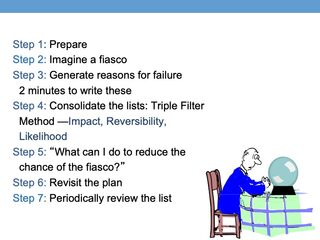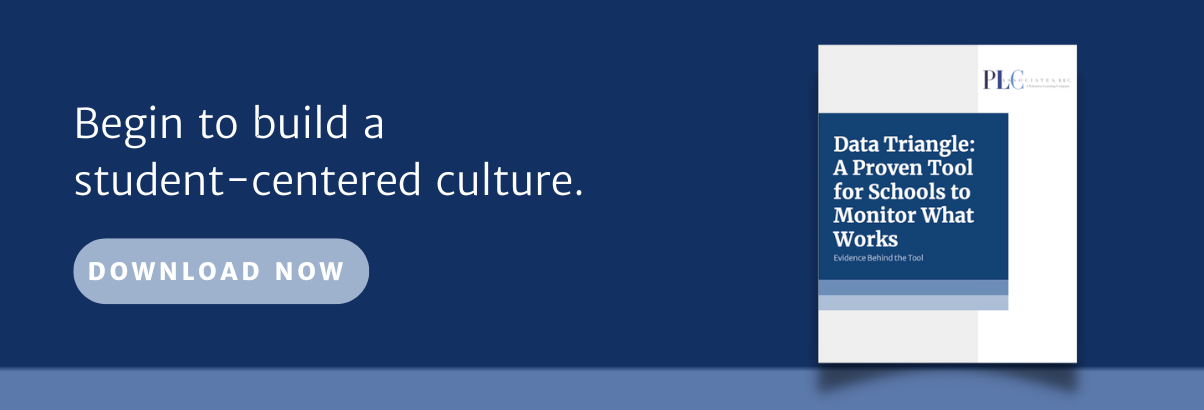Every student deserves a first-rate education, but are all of your students receiving one? A key piece to answering yes to this question is for educators to have high expectations for every student. Ask yourself, do our educators have high expectations for every student, regardless of their background? Even with a plan and structure in place to ensure all students succeed, ask yourself whether your plans are truly effective? I challenge you and your team to take a hard and honest look at what is happening in your district. Talk to the students and staff, and see how they respond to these two questions. Then reflect on whether the responses are different than what you anticipated.
Take time to review your data, go deep and examine how your sub-groups compare to the general student population. Question whether your special needs students are actually receiving a first-rate educational experience. Inquire about what truly are the expectations for your English Language Learners. And what about your socio-economically challenged students? You are likely to be surprised by what you uncover when you ask these critical questions, even when you have spent a great deal of resources in developing a plan, getting stakeholders on board, and providing professional development to support those on the front lines. Unfortunately we often find that the best laid plans fail or are not as effective as hoped.
One may hear justifications like “Rome was not built in a day, it takes time.” Yes, creating effective change is a process that takes time, but what people neglect to point out is that it only took six days to burn Rome to the ground. There may be another explanation at work. Your plan may have fallen prey to an over-optimistic bias, which causes one to overestimate the likelihood of success while clouding one’s judgment. This can create a blind spot for seeing potentially negative results (Sharot, 2011). President Teddy Roosevelt once said,
“In any moment of decision, the best thing you can do is the right thing, the next best thing is the wrong thing, and the worst thing you can do is nothing.”
At this juncture in the process, when you have determined things are not working as planned, all eyes are on the leader and decisions need to be made. You need to consider what needs to occur to rectify the current situation and more importantly, what can be done to avoid these types of failures in the future?
There are effective strategies to foster more successful plans, including data reflection and pre-mortem collaboration.
Pre-mortem Thinking
In the world of medicine, after a patient dies a post-mortem occurs when doctors and the patient’s family identify why the death occurred. This helps everyone learn, but it is too late for the one lying on the operating table. In education, something similar occurs. After an improvement plan falls short, leaders attempt to identify why their efforts failed. Both arenas utilize a reactive approach. Rather than learning after the fact, I suggest a pre-mortem exercise to identify issues and potential problems before beginning a new initiative or plan. Conducting a pre-mortem can increase the ability to identify future issues by 30% (Klein, 2007).
The best practice for a pre-mortem exercise is to gather together prior to the project or plan launch and bring in an objective facilitator to encourage honest conversation. This exercise will allow everyone involved to share their ideas and enables the creators of the project or plan to have their thinking probed to identify possible issues that may have been overlooked. As we know, sometimes the people who develop the strategy or project may be over-invested in its outcome because they put in so much work and cannot be completely objective. A pre-mortem becomes an antidote to overconfidence. This exercise should include people from all levels, creating equitable opportunities for everyone to speak with authority and confidence in a manner that does not typically occur. A pre-mortem provides people with a mechanism to raise concerns without being labeled as negative.

After assembling the group for a pre-mortem, ask them to look six to nine months into the future and imagine the implemented improvement plan was an epic failure. Ask each team member to write down the numerous reasons they can imagine the project failed. Next, have each person share the reasons they imagined. Be sure to compile a list of all responses and once completed, as a team begin to prioritize areas of concern. Some of the areas of improvement will be clear while others may take more time to navigate. This exercise can be beneficial in assisting organizations to identify early signs of trouble. The pre-mortem process focuses on being proactive, not reactive. We know time is a precious commodity, but putting the hour into a pre-mortem exercise is worth the time.
Taking A Proactive Approach: Work in Action
The Auburn Enlarged City School District, located in Central New York State, is engaged in a proactive two-pronged approach to school improvement. First, through the use of the PLC Data Triangle, Auburn utilized data collecting mechanisms to gather information regarding school performance, student voice, and family engagement. In addition to district-wide data, each school within the district has their own data set to create specific school plans. When utilizing pre-mortem exercises, the district is able to examine district wide and school data for planning purposes. This data can assist in anticipating where potential pitfalls and failures lay. More importantly, with this information, the Auburn District can proactively make decisions as to how to navigate, implement, and carry out plans effectively.
Ensuring Every Students Learns
The second prong of this data-driven and reflective approach in Auburn focuses on ensuring special education students are exposed to and are receiving an excellent education, one in which educators have high expectations for them. Too often, special education students are not exposed to grade level curriculum and/or grade level expectations. Under the leadership of Amy Mahunik, Assistant Superintendent for Curriculum and Instruction and Babette Valentine, Executive Director of Special Education, a proactive approach is taking place. By recognizing the potential for special education students to not be held to high standards, teachers at all three district levels focus on high leverage strategies to ensure this does not occur. Through strategies rooted in the Foundational Five, both general education and special educator teachers break down the grade level standards into specific skills and concepts that students need to learn during the course of the year. Teachers plan and incorporate cognitively engaging activities to ensure all students are learning, formative assessment data is collected, and targeted feedback is provided. During the lesson planning phase, teachers proactively discuss where students may stumble during individual lessons and plan accordingly. Unlike doctors in hospitals who think about the issues when it is too late, the educators in Auburn Enlarged City School District are anticipating issues before the learning takes place so that every student, especially the students with special needs, can meet their unique potential.
Seeing the glass as half full in life is important. There are benefits to being an optimist, but being overly optimistic can also create blind spots and bias. By being proactive and engaging in reflective data examination and pre-mortem thinking, your transformation plans are more likely to succeed. There will be bumps on the journey to success, but creating a plan and incorporating mechanisms to proactively anticipate these pitfalls will help in achieving success while avoiding a mess.
Accomplish Great Things in Your District
We work with you to close gaps, replicate best practices, and build high-impact, sustainable systems.
Let’s Chat About How We Can Help
Reach out to PLC Associates for a 15-minute solutions conversation.
Call us directly at 1-800-774-6801. We look forward to talking with you.

